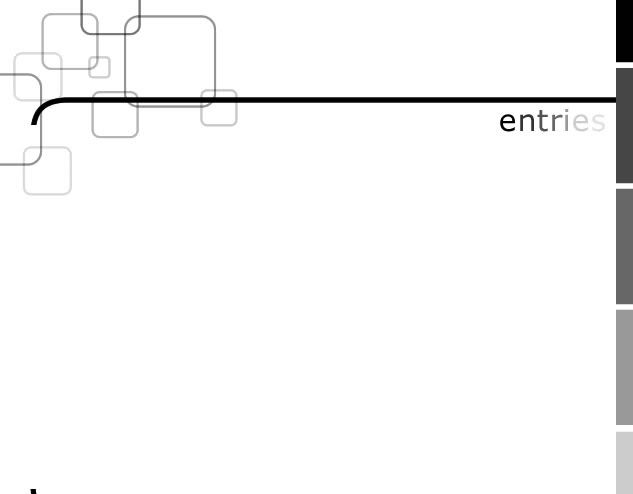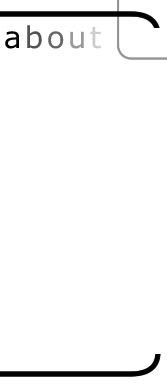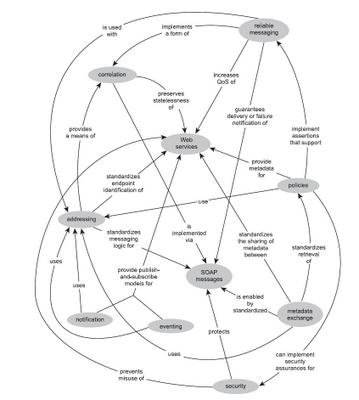Shodhan Sheth
22.m@Pune
single n lookin
shodhan[dot]sheth[at]gmail[dot]com
22.m@Pune
single n lookin
shodhan[dot]sheth[at]gmail[dot]com
linkZ n feedZ
ArKives

This work is licensed under a Creative Commons License.

Monday, August 29, 2005
J vs R
theres an intresting thread (not exaktly thread, but just some klaim-resp-resp kindoff posts) on the issue of RoR being a disruptive tek n whether it is aktually eorth while for fellow developers to leave java n try something as recent n immature as RoR.
in Order
The Innovator's Dilemma: It's Happening to Java
History repeats itself
RoR Tunnel Vision
Java Tunnel Vision
in Order
The Innovator's Dilemma: It's Happening to Java
History repeats itself
RoR Tunnel Vision
Java Tunnel Vision
Sunday, August 28, 2005
Freedom Languages
Freedom Languages. reminds me of the koncept of freeWill that i keep bringin into my arguments/ diskussions with others to tilt the weights on my side
Wednesday, August 24, 2005
Tuesday, August 23, 2005
Sunday, August 21, 2005
10 Things Every Java Programmer Should Know About Ruby
Featured at Oskon`05 the 10 ruby things stuff does bring a lot to the eye. some of the real intresting ones
n some more here
n some more here
Saturday, August 20, 2005
TextDrive
on textDrive`s front page
We have no photographs of our CEO strutting past server racks, or of women in telephone headsets ready to take your call, but we hope you’ll consider joining us all the same.
Thursday, August 18, 2005
Wednesday, August 17, 2005
More Social BookMarkin
Simpy is another one in the league of del.icio.us n spurl and akkording to the simpy about page they gotta hell lot of features(unique) than the others like
- Full-text Search bookmarked pages' content, not just meta-data
- Attach searchable notes to bookmarks
- Choose between private or public bookmarks
- Detect broken, forgotten and even redirected bookmarks
- Sync with del.icio.us
- Save private, taggable, and searchable free-text Notes
Food for Thought
Topik - Disposable S/W
the konklusivepart is kiindoff wierd, sortoff breaks the flow.
and imm not really sure about this
no enhancements???
the konklusivepart is kiindoff wierd, sortoff breaks the flow.
and imm not really sure about this
In reality, a good software developer should be able to do just that — deliver a disposable, short lived product that addresses only the pressing needs of the moment, and then simply disappears. No maintenance, no enhancements, no song-and-dance, nothing. Similar to how my one-time business presentation required nothing more but to simply be consumed, and then thrown away. No fuss, no muss
no enhancements???
gMap MashUps kould solve...
SVN`s gotta a post about stuff thats stilll hard to find online. i guess some gMap MashUps kould easily solve most of them.
Eclipse a Masterpiece??
Gary Pollice in an artikle entitled Masters n MasterPieces in the most recent rationalEdge issue talks about Eklispse being a masterpiece. now i gotta use that thing.
Tuesday, August 16, 2005
Moikrosoft Stratergy Again
Mikrosoft`s lookin for a new name for RSS n this is just another example of the kindoff business stratergy they use.
absolutely
What many inventors, developers, and geekly thinkers in general don’t realize is that a name can really get in the way of consumer adoption.
absolutely
Monday, August 15, 2005
GooGle again
Some tiime back, whenever we had teh mikrosoft vs xyz debate, there was one point that stood out on the mikrosoft side n that was its business stratergy. but after reading this artikle on GooG`s business stratergy no one would dare under-estimate them again
Tuesday, August 09, 2005
Sunday, August 07, 2005
Friday, August 05, 2005
Komments on Ruby - 2
It's worth noting here a major difference between Ruby and most other languages. In (say) Java, you'd find the absolute value of some number by calling a separate function and passing in that number. You might writethis is intresting. the point here is that one cannot exklusively define all operations possible on the class number. what if tomm theres a new formatting option out. i think that the java filosofy was to have Math.xxx methods for funktionalities on the number klass that number should not be aware of. this is a design issue. it is always safer to have objekts handle operations on self on their own. on the other hand, having a kommon klass for simple operations as deskribed above might lead to a smaller memory map.
number = Math.abs(number) // Java code
In Ruby, the ability to determine an absolute value is built into numbers---they take care of the details internally. You simply send the message abs to a number object and let it do the work.
number = number.abs
frm
Komments on Ruby - 1
Ruby is a genuine Object Oriented Languagesome years ago i remmember asking someone why C++ is not a fully OO lang n he said, 'coz in C++ yew kan do stuff without using objekts. ideally OO languages arent allowed to do that'. well, isnt that applikable to ruby too???
frm
Frustrated By Apple
Cory Doctorow flushes out his frustration on Apple after news about the probability of future makintoshes using trusted komputing. here are some excerpts that give yew an idea about the level of frustration.
n then
have a Mac tattooed on my right bicep, but this is a deal-breaker......... I've been an Apple user since 1979. I've owned dozens -- probably more than a hundred -- Macintoshes. When I worked in the private sector, I used to write purchase orders for about a quarter-million dollars' worth of Apple hardware every year. I've stuck with the machines over the years because the fit-and-finish of the OS and the generally kick-ass hardware made them the best choice for me. I've converted innumerable people to the Mac (most recently I got my grandmother's octogenarian boyfriend to pick up a Mac Mini, which he loves). Hell, I even bought half a dozen Newtons over the years.
n then
So that means that if Apple carries on down this path, I'm going to exercise my market power and switch away, and, for the first time since 1979, I won't use an Apple product as my main computer. I may even have my tattoo removed.
Thursday, August 04, 2005
Ruby`s promoting Meth
Another reason as to why ruby is the choice of language for the nerds/ geex.
Ruby is promoting Meth
Ruby is promoting Meth
Simplicity
One of my fav topix very aptly summarized in this narration
It has stuck with me as an excellent illustration of the power of simplicity and the devil that is the human tendency toward complexity.
Tuesday, August 02, 2005
Mighty Mouse

Klik - Single Button Looks, MultiButton Charm
Roll - 360 degrees of fingertip freedom
Squeeze - Press the sides to see teh sights
Skroll - Up, Down, Left, Right. All in one hand
Meet the mouse that reinvented the wheel. The scroll wheel, that is. At $49, Mighty Mouse features the revolutionary Scroll Ball that lets you move anywhere inside a document, without lifting a finger. And with touch-sensitive technology concealed under the seamless top shell, you get the programability of a four-button mouse in a single-button design. Click, roll, squeeze and scroll. This mouse just aced the maze.yeah. meet the latest n best frm apple
n for the uber geex, its programmable
Respite for India`s Family Planning Kommision
After facing years of kriticism over its inablity to kontrol the population growth, the indian planning kommision fianally has something to offer. Blogs growth rate has beat them!!!
Monday, August 01, 2005
gMail for GTD
being a big fan of GooGle n its produkts, i thought i knew everything there was about gMail. n just then i kame akross this. kool.
Conversation Overload???
The introduction sektion of my BTek thesis started with statistiks n quotes frm well known figures about the enkompassing information overload that is konsuming individuals. Tom Foremski has kompromised with the former; but raises an intresting problem of konversation overload
 |
 |
|
 |
||
 |
||
 |
||


